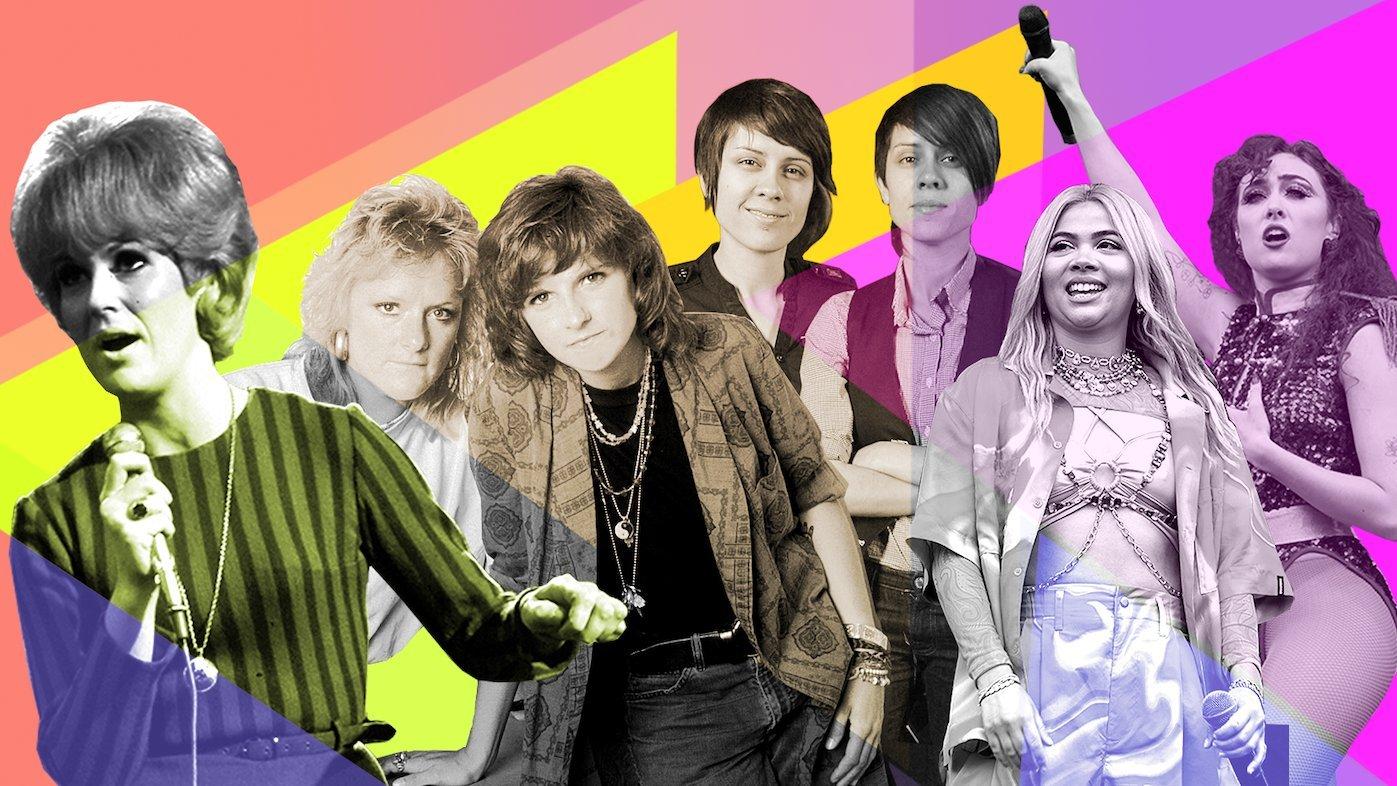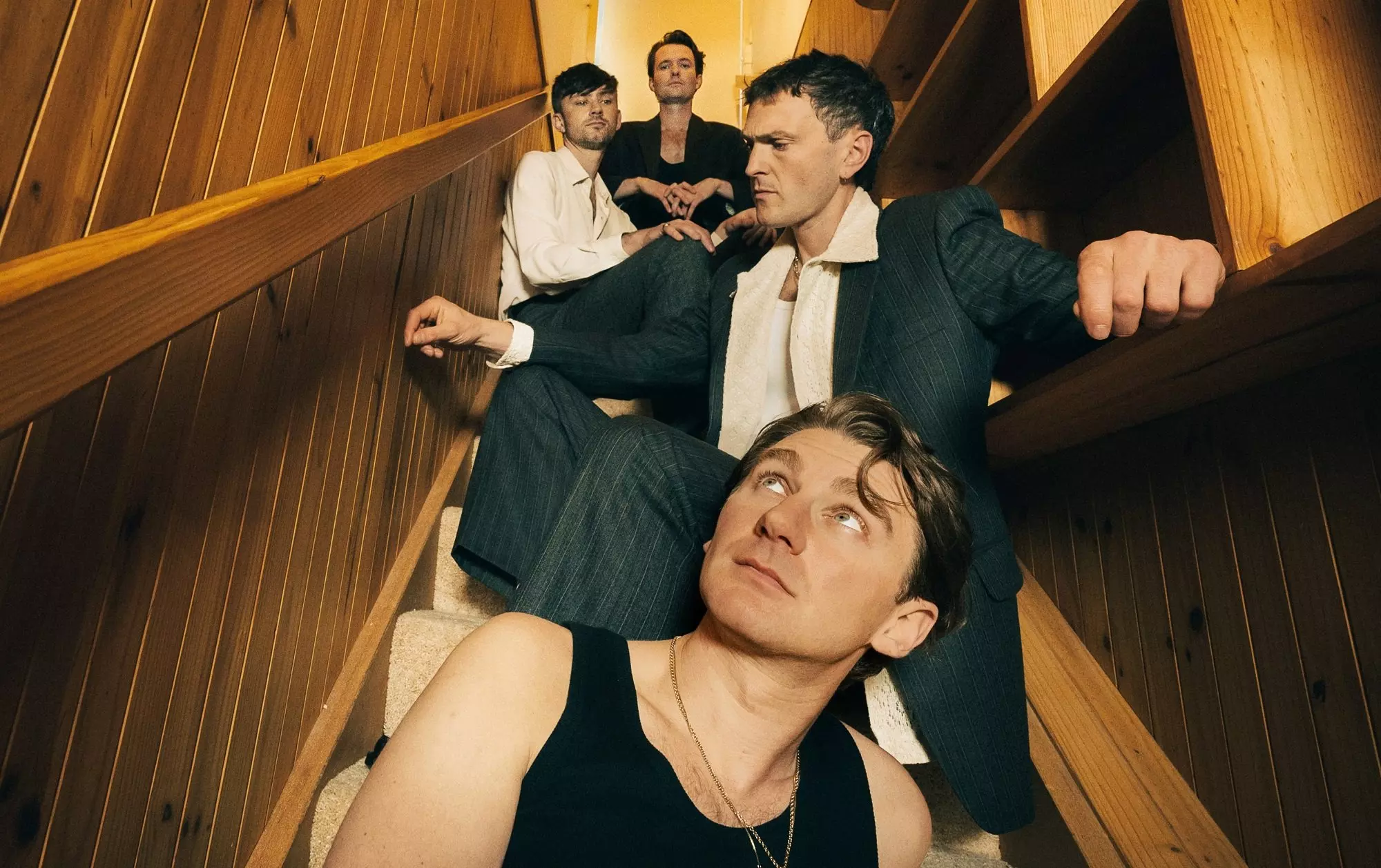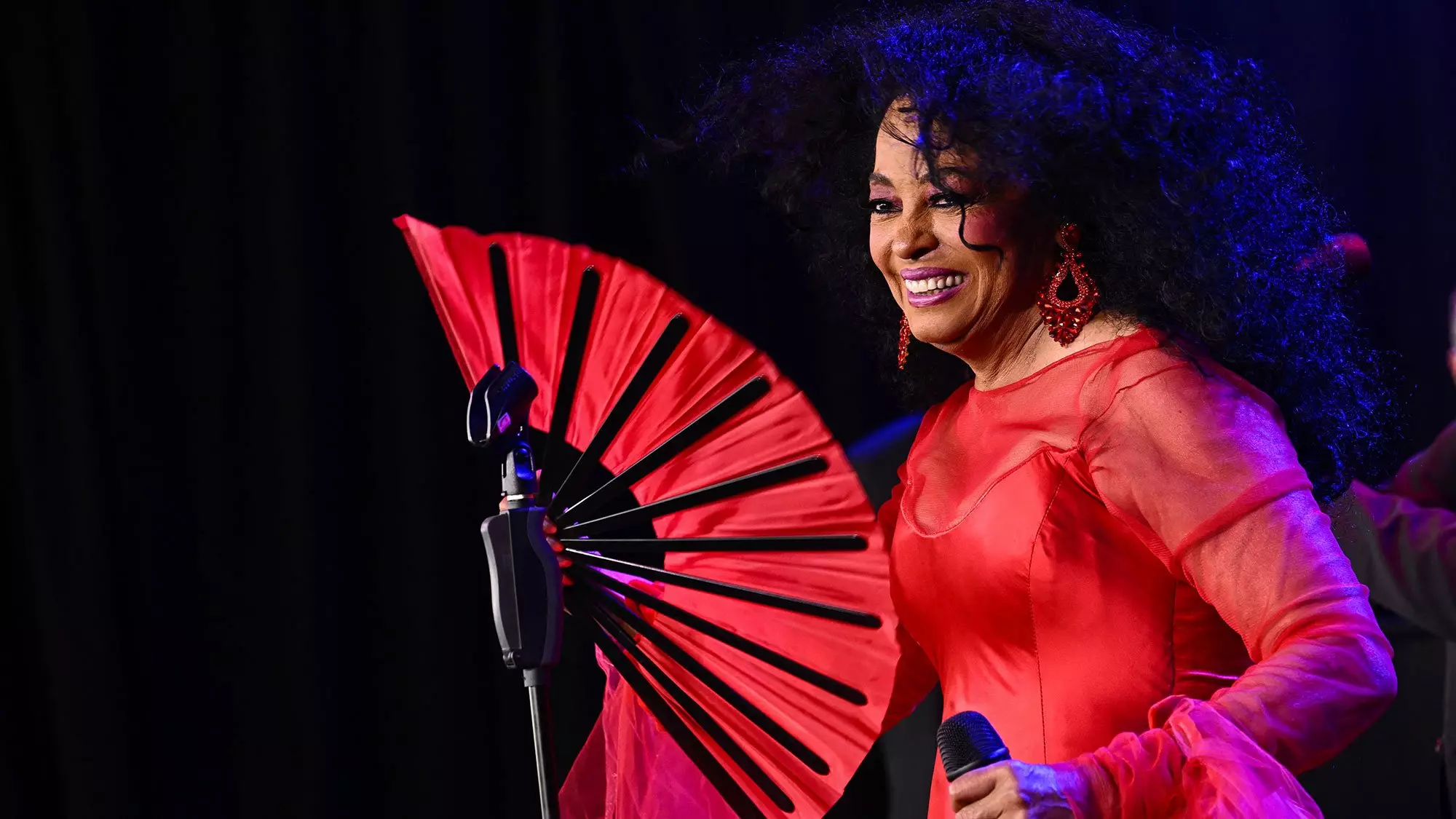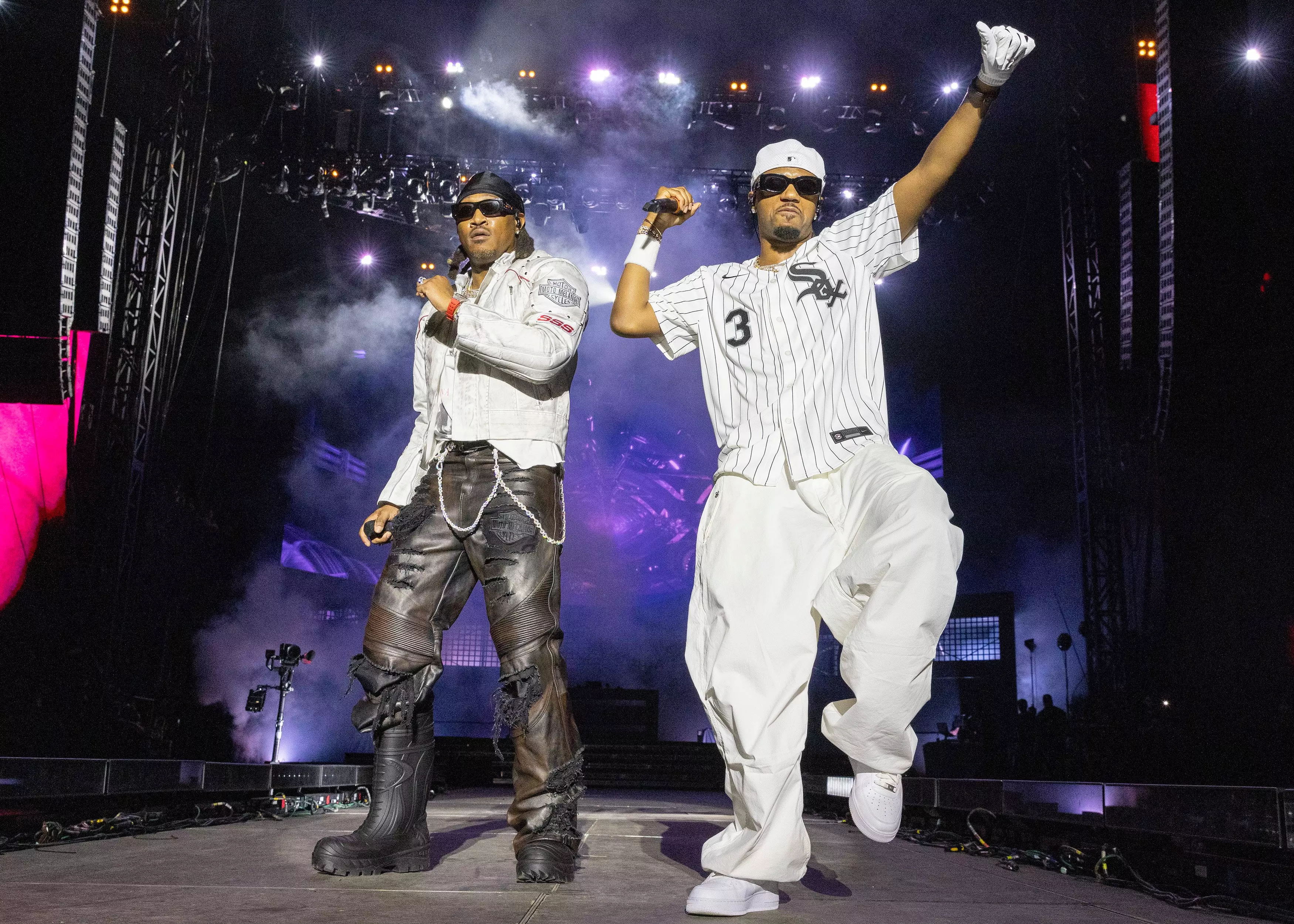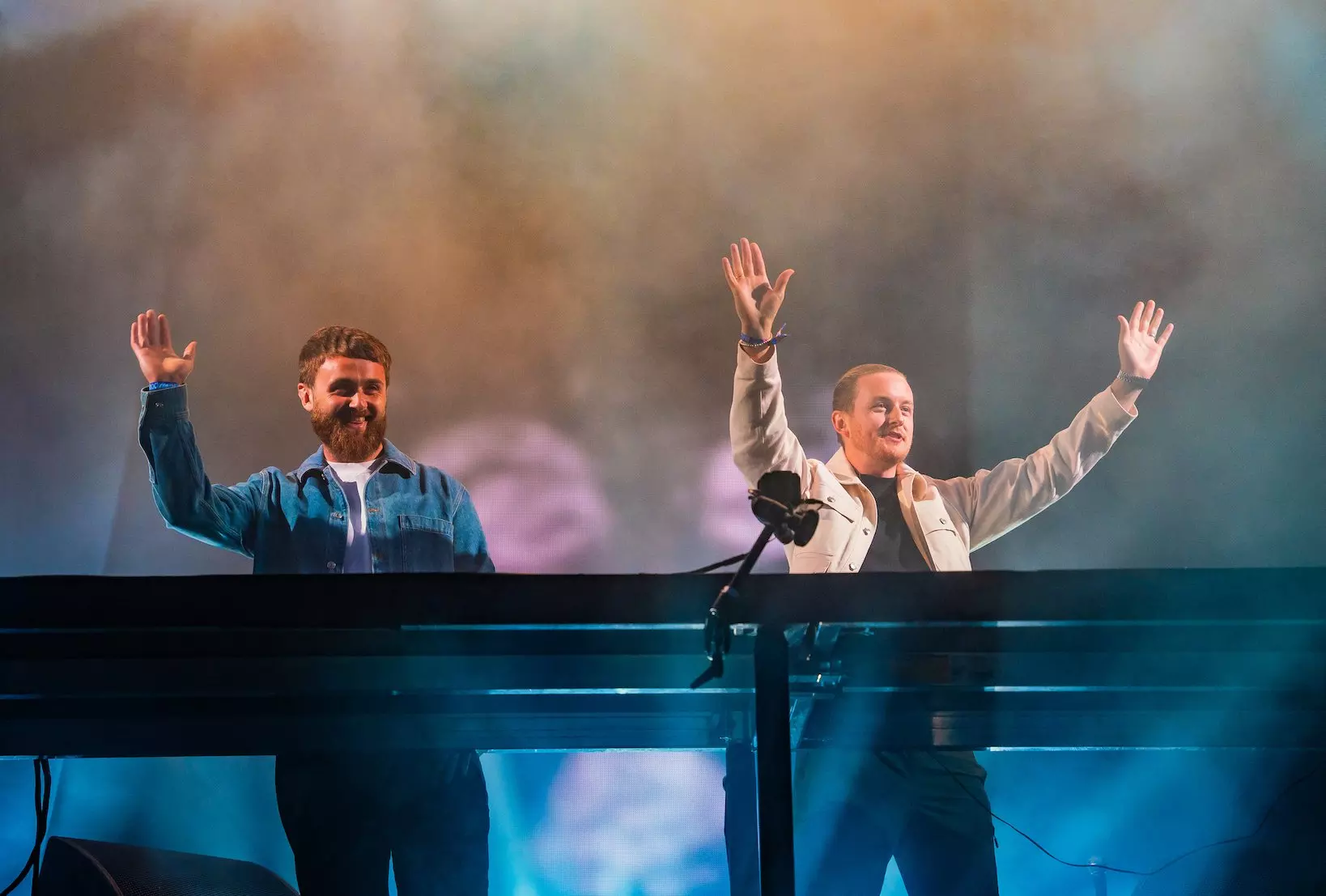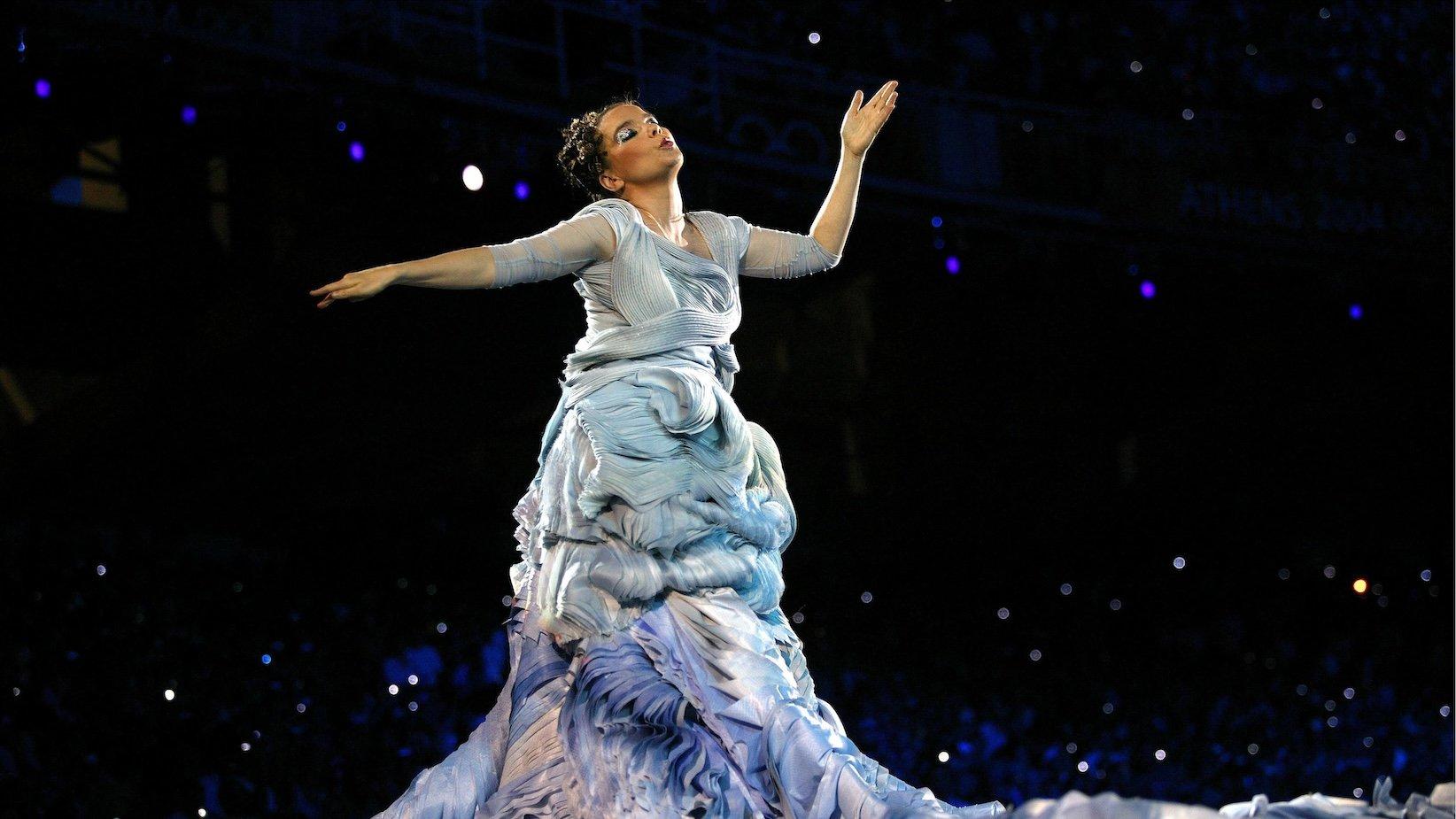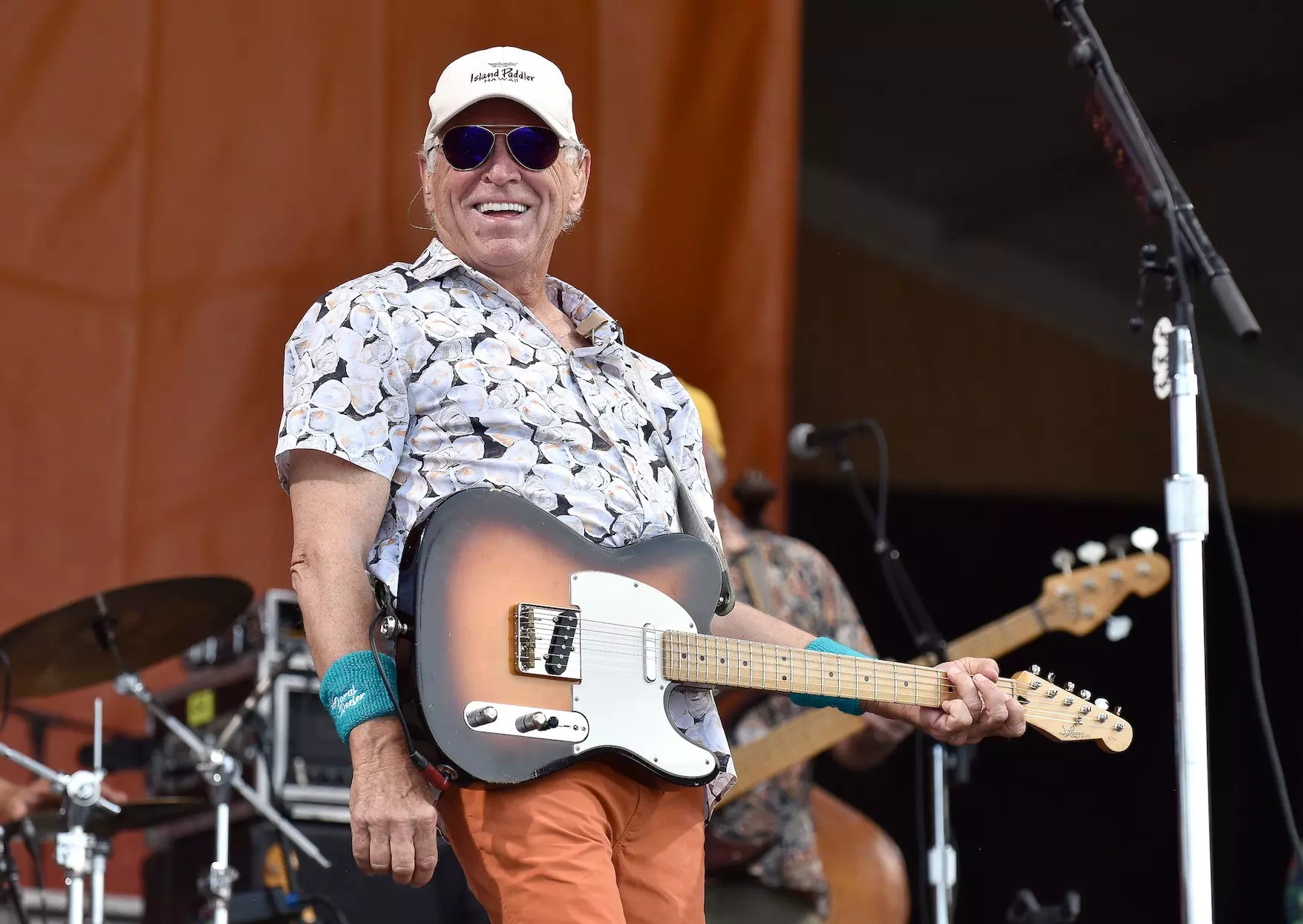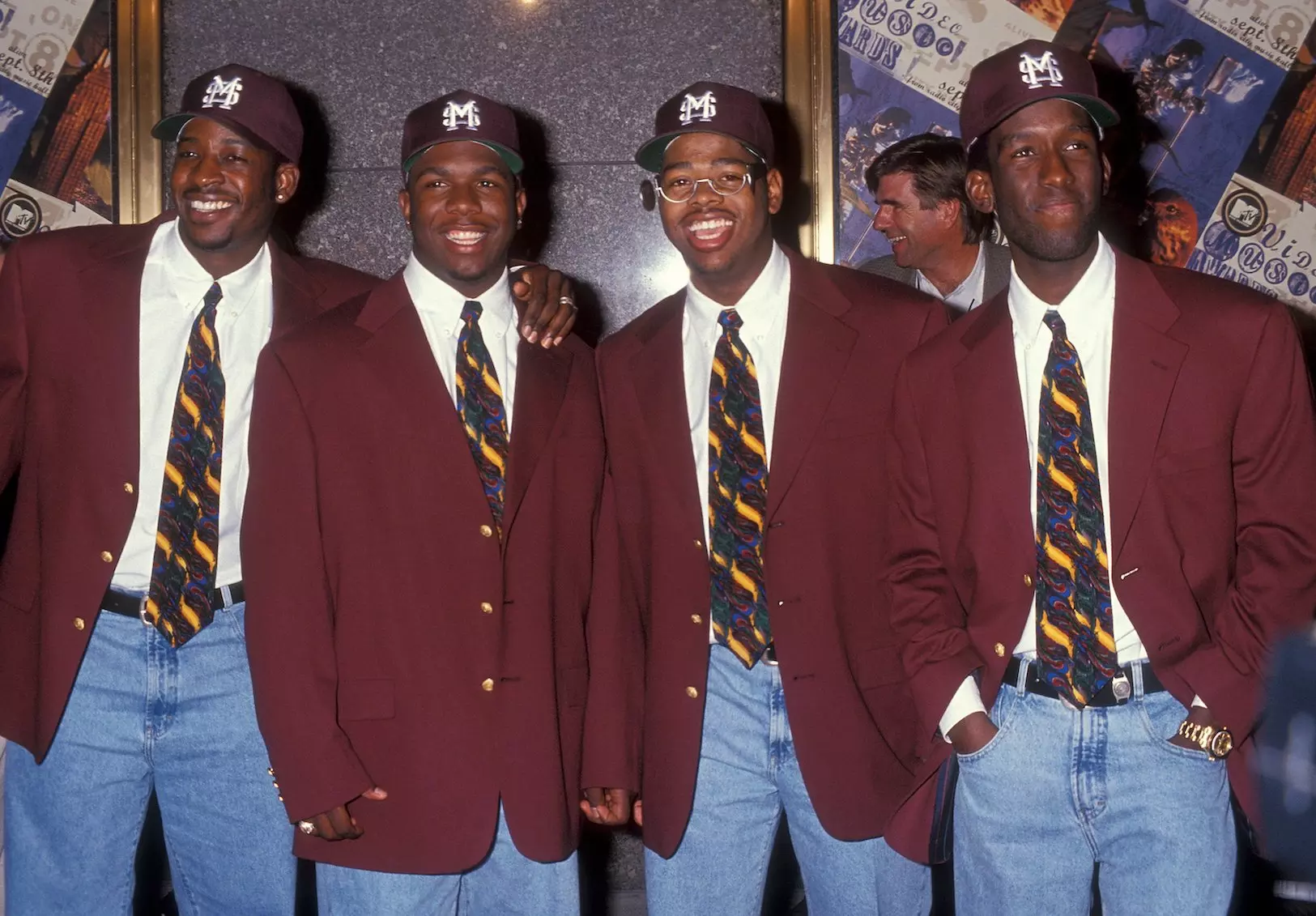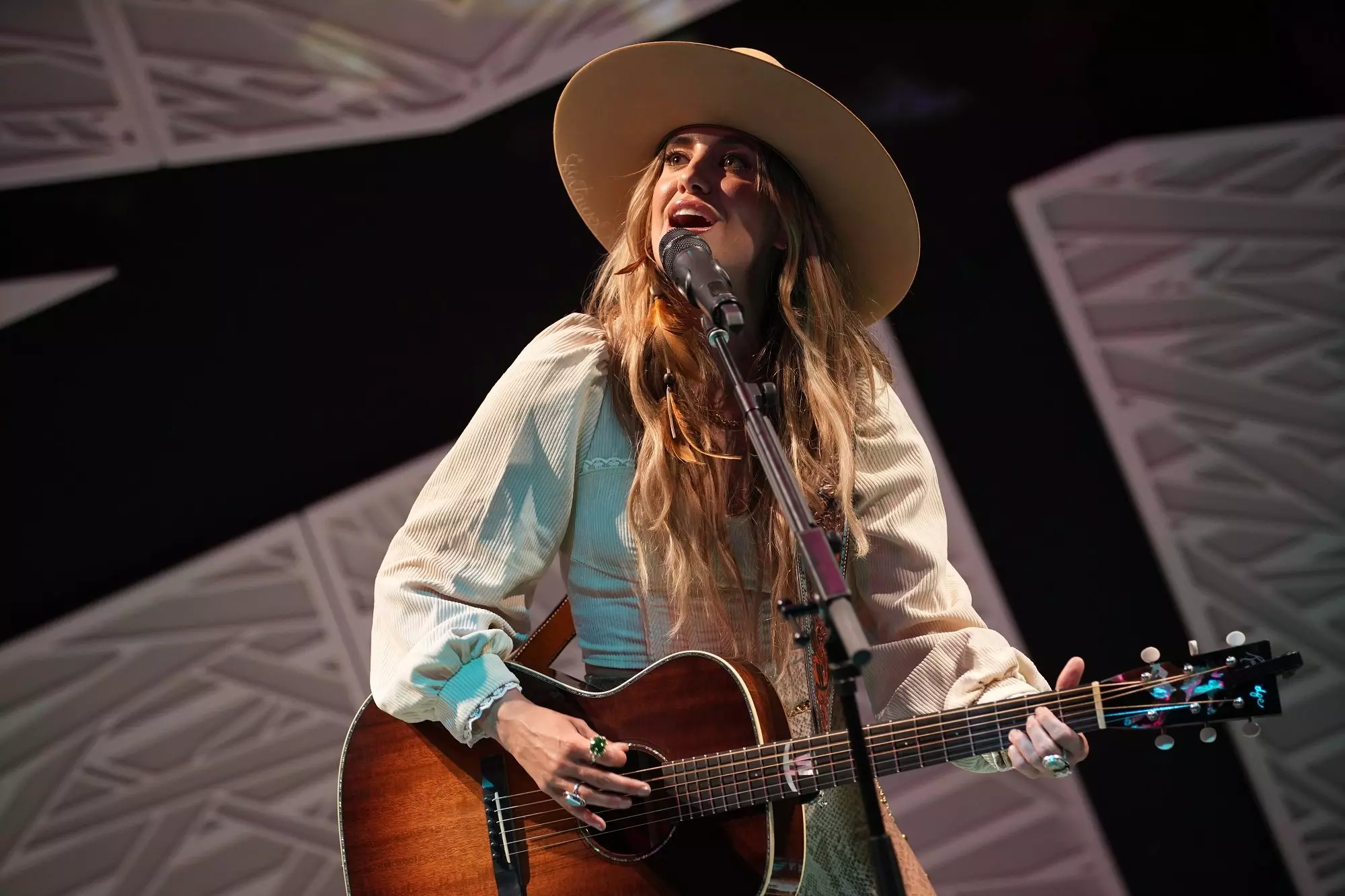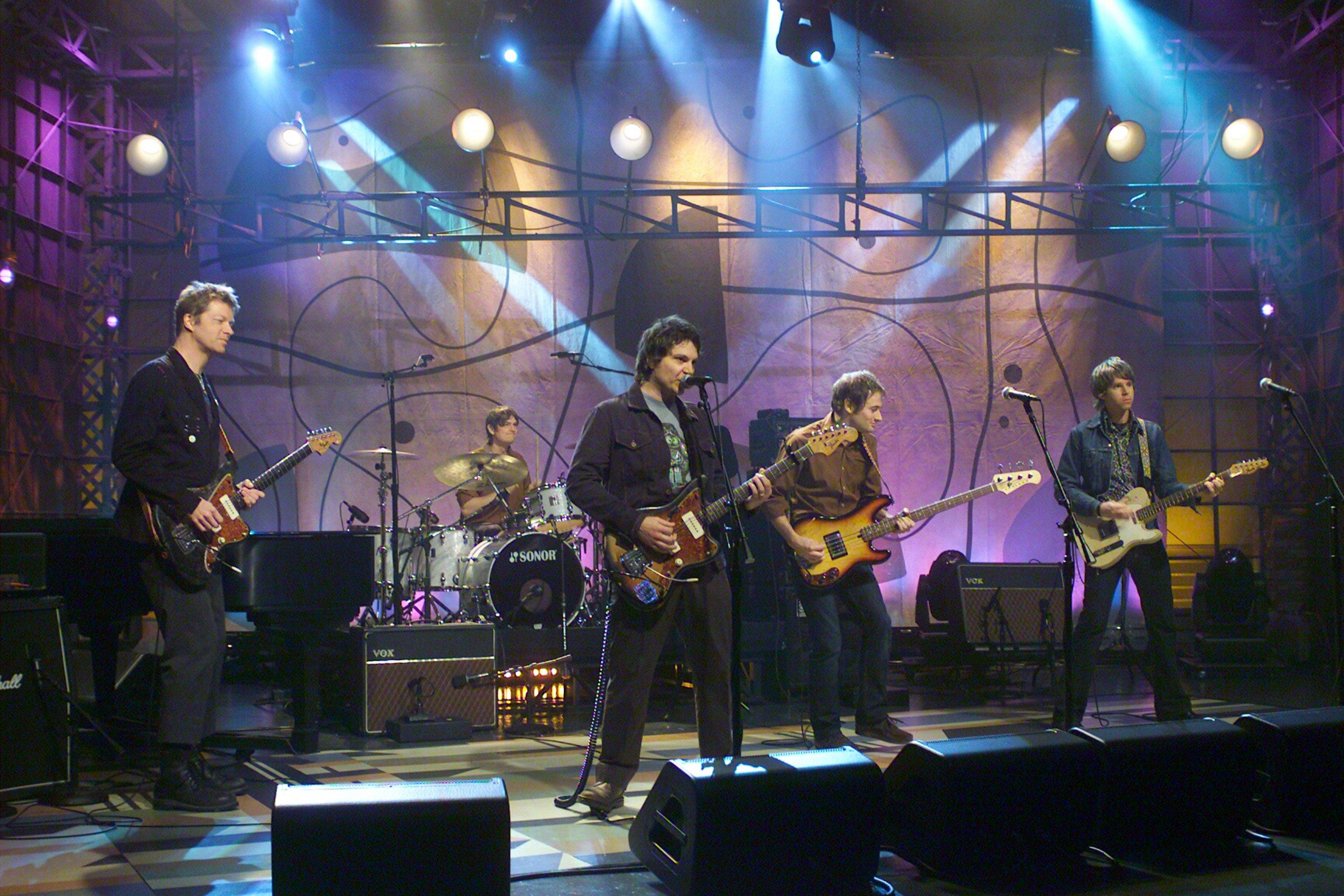In a time where pop balances between intimate vulnerability and brazen confidence, queer pop stars like Chappell Roan, Billie Eilish, Reneé Rapp, FLETCHER, and girl in red are spearheading a movement of their own: the lesbian pop renaissance.
The unofficially coined cultural craze has seen a number of queer women sing openly and explicitly about their same-sex relationships. And they're not holding back: "She was a Playboy, Brigitte Bardot/ She showed me things I didn't know," swoons Roan in "Red Wine Supernova," while Eilish gushes "she dances on my tongue" in "Lunch," and FLETCHER confesses in "girls, girls, girls" that she "kissed a girl and…really, really liked it."
This era of openly sapphic joy follows a history of hardships, with decades of queer artists defying prejudice and homophobia to sing openly about their desires and emotions. It's not been an easy journey — and struggles are still painfully evident. When grilled about her sexuality last year, Eilish declared on Instagram, "I like boys and girls leave me alone about it"; it echoed Dusty Springfield's 1970s interview when she revealed, "I'm perfectly capable of being swayed by a girl as by a boy... and I don't see why I shouldn't."
Some have defined sapphic pop as a subgenre of indie or bedroom pop, and others have celebrated the more anthemic, upbeat "sapphic bops." But in reality, no one style of music encapsulates lesbian/sapphic songs; these artists are united by loving and desiring other women — some openly, while others were restrained due to societal pressures.
The current wave of unapologetic queer stars marks a pivotal moment in music history, where sapphic pop is no longer cornered in lesbian circles and gay clubs, but dominating mainstream airwaves, and influencing global pop trends while being rightfully celebrated by the masses. So as the current queer female stars continue to thrive, it's important to pay homage to all of the artists that paved the way.
Read on for a history of defiantly queer women and nonbinary people in music — a celebration of who they are, how they have loved and their remarkable musical imprint.
1950s: A Ranchera Folk Queer Pioneer
Costa Rican artist Chavela Vargas began singing in Mexican cantinas as a teenager in the 1950s, becoming a key figure of Mexico City's bohemian artistic boom. With slick, short hair and a powerful presence, Vargas sang regional Mexican music with hoarse fragility in her songs, including "Las simples cosas" and the haunting "La Llorona" (which means "The Weeping Woman"); her sobbing voice echoing the song's grieving protagonist.
With love songs addressed to women and an androgynous sense of style, Vargas never hid her sexuality, but first openly spoke about her lesbianism when she was 81. Before her death in 2012 at the age of 93, she lived a fascinating and exuberant life, was a friend and lover of Frida Kahlo and is rumored to have had flings with the likes of Ava Gardner. With her heart-wrenching vocal command, she is considered one of the most important artists in Latin American folk, and remains a towering figure in Latin American queer history.
1960s: A Fearless Pop Star
Decades before female musicians began openly embracing their sexuality, Dusty Springfield cooly shrugged at rumors about her own — her aforementioned 1970 "coming out" interview solidifies her status as one of the first openly queer female pop stars.
Rising to fame in the 1960s with her blonde beehive and dark eye makeup, Springfield frequented London gay clubs at the height of the Swinging Sixties (which, ironically, didn’t have anything to do with queerness). With hits including "You Don't Have To Say You Love Me" and "Son of a Preacher Man," her powerful voice channeled emotion with unnerving vulnerability. Though her music was never quite as frank as she was in the public eye, a few of Springfield's later releases touched on queer themes (1979's "Closet Man" and her 1989 collab with Pet Shop Boys, "In Private").
1970s: Feminist Folk & Funk
The second-wave feminist movement in the U.S. pushed gender issues to the core of the country's socio-politico agenda, including fights for abortion rights (Roe v. Wade in 1973) and the ferocious push to pass the Equal Rights Amendment. Women artists were showing they were more than pop glam, picking up guitars and refusing to dress up for the cameras, favoring casual attire; sapphic pop was entering an era of authenticity and emotional honesty. Along the way, a group of feminist lesbians set up Olivia Records.
In 1975, Olivia's co-founder Cris Williamson released her politically charged folk album, The Changer and The Changed, one of the highest-selling independent records of the time; two years later, Linda Tillery's funk-soul track "Womanly Way" explored the sensual side of sapphic love: "I think I'd like to get to know you in a special kind of womanly way" she croons. Pioneering trans sound engineer Sandy Stone was an integral part of the Olivia team until she was forced to leave after receiving harrowing threats from separatist groups, sadly marking the steady decline of the groundbreaking label.
In the UK, Joan Armatradingattracted buzz after performing gigs around her native Birmingham, earning fans for her slick guitar, melodic piano and powerful vocals. Though her lyrics were gender-neutral, Armatrading's music was largely embraced by the lesbian community — including the 1978 song "Taking My Baby Up Town," which celebrates queer love despite the prejudice and homophobia of the time ("You kissed me/ And then all the people started to stare/ We started a commotion/ Someone making comments, morals/ The state of affairs and I said, "What we got is the best"). In 2008, she performed on Cyndi Lauper's True Colors Tour, which raised funds for LGBTQIA+ charities; she has spoken openly about her sexuality in the past decade, and has been in a civil partnership with Maggie Butler since 2011.
1980s: Love, Lust & Rock and Roll
The '80s brought a spirit of punk into the mainstream, and queer circles were attracted to the music's rebellion and rage. British-Canadian singer Carole Pope was part of the rock band Rough Trade, characteristically clad in leather and singing raunchy songs dedicated to the joys of BDSM and girl-on-girl eroticism. Rough Trade's lustful 1980 song "High School Confidential" shocked listeners at the time: "It makes me cream my jeans when she comes my way," swoons Pope. In 1981, she had a brief (but intense) relationship with Dusty Springfield.
A new folk movement was quietly brewing in the hushed tones and poignant strums of Tracy Chapman. Though she has never spoken publicly about her sexuality, her GRAMMY-winning hit "Fast Car" has been embraced as a lesbian anthem for its ideals of escapism and unhinged freedom. (Chapman's sexuality was later confirmed by her former lover, author Alice Walker, who spoke about their mid-90s relationship in 2006, though there's no disclosed relation to "Fast Car.")
Folk-rock duo Indigo Girls, who are both openly lesbian, formed in 1985 and immediately cultivated a cult queer following that led to a major label deal in 1988. Their 1989 self-titled album — which spawned the celebrated queer anthem "Closer to Fine" — went double platinum in the U.S. and won a GRAMMY for Best Contemporary Folk Recording in 1990. Just this year, the duo released a documentary, It's Only Life After All, which charts their journey, revealing the homophobic snubs they've stoically endured throughout their career.
Meanwhile, South AfricanBrenda Fassie began making music with her band the Big Dudes in the early 1980s, combining pop with hip-hop and kwaito. While Fassie did not explicitly sing about being queer, she often referred to herself as a lesbian and never hid her relationships with women. A staunch anti-apartheid campaigner, Fassie made pop with powerful social commentary; she was even hailed as the "Madonna of the Townships" for her brazen lyrics. Thought to be Africa's first openly queer pop star, Fassie remains a beacon of acceptance and tolerance in a region where homophobia is still rife — even two decades after her passing.
1990s: Intimacy Resonates
Building on the folk origins of Chapman and Indigo Girls, k.d. lang initially broke through with several country hits in the late '80s, but ruffled feathers with country radio when she came out as a lesbian in 1992. Nonetheless, she never backed down from who she was, and it launched her to sapphic pop stardom. Lang's alluring stage presence and a sensual masc charm helped her score a global hit with 1992's "Constant Craving," which has been cited as an ode to lesbian love. The song won a GRAMMY for Best Female Pop Vocal Performance in 1993 — the same year she posed for a steamy Vanity Fair photoshoot with Cindy Crawford, which goes down in the lesbian history books.
In the late '90s, teenage twins Tegan and Sara picked up guitars and began performing confessional acoustic songs with big pop hooks and grunge elements (1999 track "Proud" features empowering lines such as "Freedom and blood/ I make my mark and fight for tomorrow… I'm proud to be me"). Their unapologetically queer music videos were intentional in their push for inclusion, complete with same-sex make-out scenes featuring LGBTQIA+ actors. The sisters, both openly lesbian, had a cameo in the cult lesbian series "The L Word," and their nonprofit Tegan and Sara Foundation promotes for LGBTQIA+ equality by raising funds for health care programs, summer camp and more.
The 2000s marked a shift away from the acoustic confessionals of the decades prior, with a move into club beats and big pop hooks. Queer band the Gossip, starring charismatic, rebellious frontwoman Beth Ditto, broke all expectations of what pop could be and look like, with punk chords, disco beats and a belting voice. Their 2005 smash hit album, Standing in the Way of Control, confronted the marginalization and fear experienced by the queer community. The album's titular song was written in resistance to George Bush's attempt to outlaw same-sex marriage; "Standing in the way of control/ You live your life/ Survive the only way that you know," screamed Ditto.
Before developing a synth-pop sound on later albums, Chile's Javiera Mena carved emotional, melodic songs on her keyboard with her 2006 debut, Esquemas Juveniles; the album featured heartfelt love songs like "Camera Lenta," which eschewed pronouns to sing about "the different paths to your eyes" in Spanish. Though she became more explicit with her sexuality in the 2010s — particularly on the lesbo-erotic hit "Espada" — Mena has been recognized as one of the pioneers in Latin America's LGBTQIA+ movement, alongside Ricky Martin, Kany Garcia and Pabllo Vittar.
London teenager Elly Jackson, better known as La Roux, immediately broke onto the pop scene with her smash "Bulletproof," and attracted a queer following for her androgynous looks — a refreshing anecdote to the chart dominance of hyper femme pop-stars of the time. While Jackson initially eschewed any labels, not wanting to be confined to queer audiences and baffled by the public speculation on her sexuality, she later embraced her place as an LGBTQIA+ icon (her 2014 track "Cruel Sexuality" appears to address her own journey: "Cruel sexuality / Am I a fool to let you trouble me?").
2010s: Mainstream Breakthrough
The 2010s marked a significant push for marriage equality, with same-sex marriage rights being awarded in countries like the U.S., UK, Argentina, Germany, and Australia, among others. This movement for equality was paralleled by a growing visibility of LGBTQ+ representation in pop culture — and sapphic pop was beginning to resonate more than ever before.
L.A.-bred trio MUNA released their indie pop debut, About You, in 2017, loaded with heartfelt songs that helped the trio quickly cultivate a die-hard following of queer fans. Listeners identified with the band's rebellion about heteronormative tropes and coming-of-age queer songs like "It's Gonna Be Okay, Baby" ("Your gonna move to New York, and experiment with communism/ Go down on a girl/ After reading her some Frantz Fanon").
Another bisexual indie darling (and MUNA's eventual "Silk Chiffon" collaborator), Phoebe Bridgers, also released her debut in 2017. Titled Stranger in the Alps, the album navigated toxic relationships, as well as Bridgers' experiences with women, with queer fans gravitating toward her unprecedented bisexual representation.
A year later, Bridgers teamed up with fellow LGBTQIA+ stars Julien Baker and Lucy Dacus to form the supergroup boygenius. The trio has flipped the "boy band" trope on its head, showing that masculine heartthrobs can emerge from feminine fluidity. With lyrics that delve into queer love and heartbreak — and live shows featuring plenty of onstage making out — the band has had a seismic impact on the sapphic pop landscape (and won three GRAMMYs in the process).
In the mid-aughts, U.S. pop star Hayley Kiyoko was experimenting with her artistry following the split of being in girl group The Stunners. Reintroducing herself as a solo star in 2013, Kiyoko had the freedom to explore lyrical themes that were more true to her own experience — like her 2015 breakthrough hit, "Girls Like Girls." The song, and accompanying music video, cemented her place in the queer pop canon; which Kiyoko has followed up with several songs about queer love and relationships, including "What I Need" featuring Kehlani (who came out as lesbian in 2021 and has since explored her own sapphic narratives, like 2020's "Tangerine.")
After hinting at their sexuality with the breakup song "Talia" in 2017, King Princess, who is genderqueer, went all-in on their queerness with the laid-back indie love song "Pussy is God" in 2018. Since then, they've built a cult following with songs marked by blatant honesty in a shifting age of gender identity and sexual expression — like 2022's "Sex Shop," which contemplates the use of strap-ons and binders.
Meanwhile, pansexual and nonbinary artist Janelle Monaédonned vagina-shaped pants for their symbolic video "Pynk," their 2018 sapphic sex anthem from Dirty Computer — a queer afro-futurist album that rebelled against the conservative policies of the then-incumbent Trump administration ("If you try to grab my pussy cat/ This pussy cat grab you back" they spit on "I Got The Juice"). The album's accompanying science-fiction film featured Monaé playing an android on the run with a lover, played by Tessa Thompson. Monaé's went even more explicitly queer in follow-up album The Age of Pleasure, a hedonistic kaleidoscope of funk, pop and reggae ("I like lipstick on my neck, leave a ticky hickey in a place I won't forget," they flirt on "Lipstick Lover").
2020s: Sapphic Pop Explosion
Though we're only four years into the 2020s, the decade has been marked by an explosion of sapphic pop. New Jersey pop star FLETCHER helped kick off the movement in 2020 with her EP The S(ex) Tapes, which navigated the end of a lesbian relationship through dark pop hooks loaded with sensual energy. Two years later, she doubled down on the lesbian narrative with her debut album, Girl Of My Dreams, which spawned one of the most viral queer songs of the decade this far, "Becky's So Hot." (In between, she delivered another lesbian bop alongside Kiyoko with 2021's "Cherry.")
Norwegian indie star girl in red, who is openly queer, cultivated a huge online following after the release of standalone early singles (in the track "i wanna be your girlfriend," she sings, "Oh Hannah… I don't wanna be your friend/ I wanna kiss your lips"), before releasing her highly anticipated debut if i could make it go quiet in 2021, featuring songs like "Did You Come?" ("Did you do the things you know I like? Roll your tongue, make her cum 20 times?"). Her connection to lesbians and bisexual women was so strong that the term "do you listen to girl in red?" evolved into a code to identify fellow queers on Sapphic TikTok.
In the Latin urban scene, openly gay Puerto Rican star Young Mikko is shaking up reggaeton with her assured flow and cheeky, suggestive singles including "Peach" — an ode to her lover's rounded butt. Brazilian star Ludmilla makes listeners blush with her sensual track "Sintomas de Prazer," talking about getting turned on while giving her lover pleasure.
After Billie Eilish established herself as one of the biggest pop stars of her generation, she faced intense pressure to come out as queer in November 2023. Six months later, her sexuality became a central theme in her third album, HIT ME HARD AND SOFT — particularly the album's first single, "LUNCH," a fearless ride on pleasuring women. She seems to be enjoying her newfound freedom, too: in her recent remix of Charli XCX's "Guess," she deviously sings, "I wanna … kiss it bite it, can I fit it?/ Charli likes boys, but she knows I'd hit it."
Eilish was one of many Coachella 2024 performers who brought sapphic pop to the desert. Reneé Rapp's set was introduced by the cast of "The L Word," Ludmilla's shared a tender onstage kiss with her wife during love song "Maldivas", and of course, Chappell Roan — decked in her Eat Me tee — had thousands to sing along with her unabashedly kinky hits.
Roan herself is redefining pop, with outfits inspired by drag aesthetic and lyrics that are unapologetically sapphic ("Knee deep in the passenger's seat and you're eating me out/ Are we casual now?" she sings in country pop ballad "Casual"). In August, Roan broke records for attracting Lollapalooza's largest-ever crowd, and her rapidly rising fame helped her 2023 album, The Rise and Fall of a Midwest Princess, reach No. 2 on the all-genre Billboard 200 (and a UK No. 1) nearly a year after its release.
Lesbian and queer artists have been making music for decades — and with artists more openly celebrating their sexuality than ever before, it's an undeniably exciting and historic time for the LGBTQIA+ music community. A new era of sapphic pop is upon us, and it's hot, explicit and gleefully unrestrained. You could even call it a femininomenon.
Explore More Alternative & Indie Music

